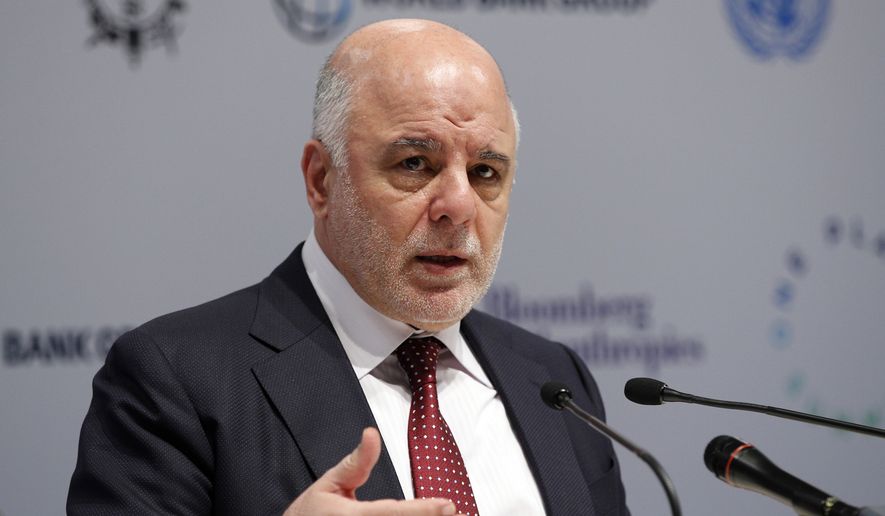The two main Iranian-backed Shia militias in Iraq warn that U.S. forces in the country face possible attack by their forces, should Washington not carry out a full withdrawal of American troops from the country.
Members of Shia-led Kata’ib Hezbollah, Badr Organization and other Iranian-linked paramilitaries under the Popular Mobilization Forces (PMF) banner stood ready to battle back against the American “occupation force” inside Iraq, said Kata’ib Hezbollah spokesman Jafar al-Hussaini.
“Iraq will not see stability with America’s presence. The Americans have not entered Iraq based on the Iraqi government’s consent,” Mr. al-Hussaini said in an interview with Lebanese news outlets.
“Our combatants have limited weapons but a confrontation with the American forces may begin at any moment. Unlike in the past, the Americans this time will not benefit from any mediation,” he added. Leaders from the Badr Organization say a continued U.S. military footprint in Iraq would only increase the chances of extremist movements to sprout up, in the wake of Islamic State’s defeat in the country.
There are now an estimated140,000 registered fighters under the PMF banner in Iraq according to military officials in Baghdad, which constitutes nearly half of the Iraqi army and a quarter of the security forces under the Interior Ministry.
Washington and Baghdad “should co-ordinate to ensure a full withdrawal,” Badr Organization spokesman Kareem Nuri said. “A U.S. presence will be cause for internal polarization and a magnet for terrorists,” he added.
American and coalition forces have already begun to pull back air assets and manpower from northern Iraq, following the liberation of Islamic State’s Iraqi capital of Mosul in last year. Iraqi officials within the government of Prime Minister Haider al-Abadi say nearly 60 percent of the over 8,000 U.S. troops in Iraq would be pulled out, recent reports claim.
However, command officials reiterate the U.S. would retain a military presence in the country, despite the defeat of the Islamic State, or ISIS.
“Continued coalition presence in Iraq will be conditions-based, proportional to the need and in coordination with the government of Iraq,” coalition spokesman Col. Ryan Dillon said in a statement earlier this week.
Should that timeline hold, U.S. troops will likely still be in country during national elections slated for later this year.
Leaders from the Badr Organization, Kata’ib Hezbollah, Asa’ib Ahl al-Haq — also known as the Khazali Network — and other Shia militias that battled Islamic State have banded together to form a Shia political movement designed specifically to take on the ruling party during the upcoming elections.
Dubbed the Mujahedeen Coalition, the new coalition seeks to leverage the militia’s battlefield victories against ISIS over the last three years into political clout within the Iraqi parliament.
A successful bid by the Mujahedeen Coalition to secure seats in the country’s legislature could fracture Mr. Abadi’s delicate balance of power inside Iraq, while potentially expanding Iran’s influence in the country.
Military advisers with the Iranian Revolutionary Guards Corps and the Corp’ Quds Force — which specialized in training and advising Iranian proxy forces — were already assisting the PMUs in political organization efforts outside of Tal Afar and western Mosul, as the militias liberated previously ISIS-held areas during the war.
• Carlo Muñoz can be reached at cmunoz@washingtontimes.com.




Please read our comment policy before commenting.